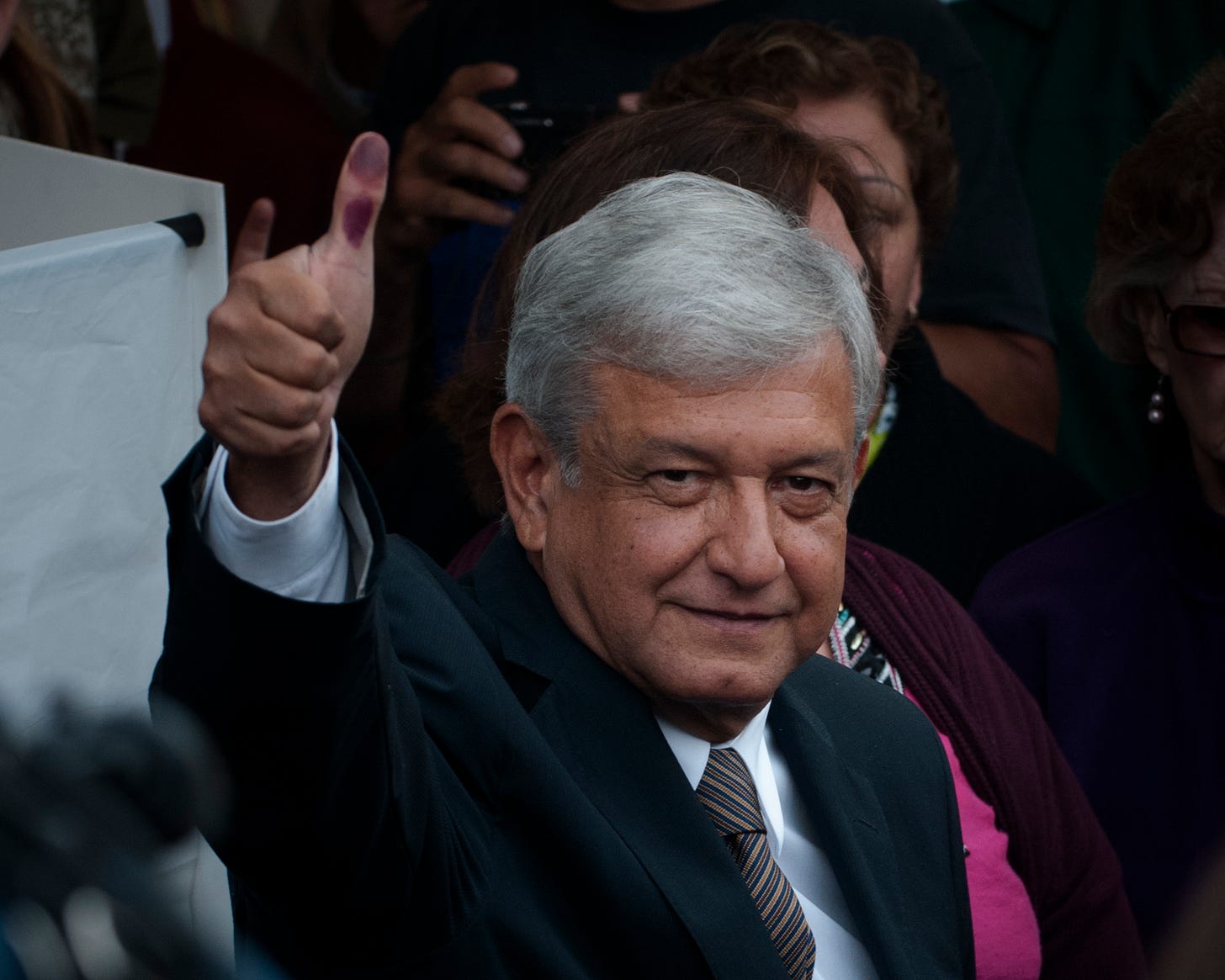Mexico's AMLO Refuses to Fight Cartels on "US Orders"
Recently, Mexico's President Andrés Manuel López Obrador made his position very clear regarding how he plans to handle drug cartels and Mexico's relationship with the United States. Unlike past leaders who took a tough approach, López Obrador is taking a different path. He’s all about putting "Mexico First," saying the country won't be pushed by other nations, especially the U.S., to fight drug cartels. This marks a big change in how Mexico deals with its issues, focusing on what’s best for the country first.
The Genesis of "Hugs, Not Bullets"
President López Obrador, since the inception of his tenure, has championed the controversial yet pacifist doctrine of "hugs, not bullets." This approach, rooted in the belief that violence only begets more violence, aims to tackle the hydra of cartel violence not with guns and aggression but through addressing its socio-economic underpinnings. Poverty and lack of opportunities, according to the president, fertilize the grounds from which the cartels draw their strength and influence.

A Policy Anchored in Nationalism
During a candid address, López Obrador underscored his refusal to bend to external mandates, particularly from the United States, in Mexico's internal war on drugs. "Mexico First. Our home comes first," he proclaimed, encapsulating a policy that prioritizes national sovereignty over foreign dictates. In his view, the drug menace, while a shared concern, should not dictate Mexico's internal security strategies.
This nationalism is not without its practical facets. The president acknowledged the humanitarian crisis wrought by drugs like fentanyl on American soil and expressed a willingness to collaborate in stemming this tide, albeit on humanitarian grounds rather than as a surrogate law enforcement entity for another nation.
Revisiting Historical Perspectives
López Obrador's stance is reminiscent of a philosophy that pervaded Mexican governance in the 1970s—a time when the drug trade was largely viewed as an American problem, with Mexico merely a passageway for substances bound for U.S. streets. This perspective, as noted by security analyst David Saucedo, aligns with a broader historical reluctance to engage in what was seen as a U.S.-centric war on drugs.
Yet, Saucedo brings to light an uncomfortable reality—the cartels, while undeniably a source of violence, also function as economic engines in regions abandoned by formal economic development initiatives. This dual role complicates the narrative, suggesting that the cartels are woven into the fabric of certain Mexican communities, providing jobs and a semblance of social mobility, albeit at a significant moral and social cost.
The Ethical Quandary and Policy Implications
López Obrador's emphasis on humanizing the cartel members—"they are human beings," he has stated—reflects a broader ethical stance that eschews demonization in favor of understanding and, potentially, reconciliation. This approach, while noble in intent, has not been without its critics. The notion of negotiating peace with entities known for their ruthlessness might seem naïve or even dangerous to those who have suffered under the cartels' yoke.
Moreover, the president's frequent visits to regions known as cartel strongholds, such as Badiraguato, Sinaloa, underscore a commitment to engage with all constituents, regardless of their affiliations. Yet, such gestures have raised eyebrows and questions about the feasibility of peaceful coexistence with entities that have historically exploited and terrorized communities for profit.
The Unspoken Crisis: Extortion and Control
Beneath the high-profile drug trafficking operations lies a more insidious reality. Cartels have evolved into complex networks that exert control through extortion, protection rackets, and the infiltration of legitimate businesses. This transformation has seen the cartels entrench themselves deeply into the social and economic fabric of Mexico, challenging the notion that the drug trade is their sole or even primary activity.
The Path Forward: A Question of Balance
As Mexico navigates this complex landscape, the "Mexico First" policy espoused by López Obrador invites a reevaluation of conventional strategies against drug cartels. The president's commitment to reducing domestic violence and his reported success in lowering homicide rates reflect a broader attempt to recalibrate Mexico's approach to security and development.
Yet, the question remains: Can a strategy rooted in understanding, economic development, and national sovereignty coexist with the imperative to dismantle violent and oppressive criminal networks? The answer to this conundrum will shape Mexico's future, determining whether it can forge a path that respects its sovereign rights while protecting its citizens from the scourge of cartel violence.
Mexico stands at a crossroads, with its leadership advocating for a nuanced approach to an issue that has long plagued the nation. As López Obrador's presidency continues to unfold, the world watches closely, waiting to see whether "hugs, not bullets" can truly pave the way for peace and stability in a land torn by conflict and coercion. The delicate balance between sovereignty, security, and humanity remains the central challenge, one that will define Mexico's trajectory in the years to come.



I wish our leaders took a "United States First" approach. I cant say I totally disagree with him but there is a level of violence occurring in Mexico that most Americans would not even begin to comprehend. I think his taking care of things at the economic level should be a focus but he needs to cut the head of the snake off first. I think his economic battle is going to take a very long time, I forget what I just read the other day, but I think he was able to raise the minimum wage to around $13 USD a day. Good luck getting cartels to stop doing what they are doing for $13 USD a day.
With the USG being the biggest drug dealer in the world it will be interesting to see how this works out. Plus the MIC won't like less sales if the policy were to actually work.